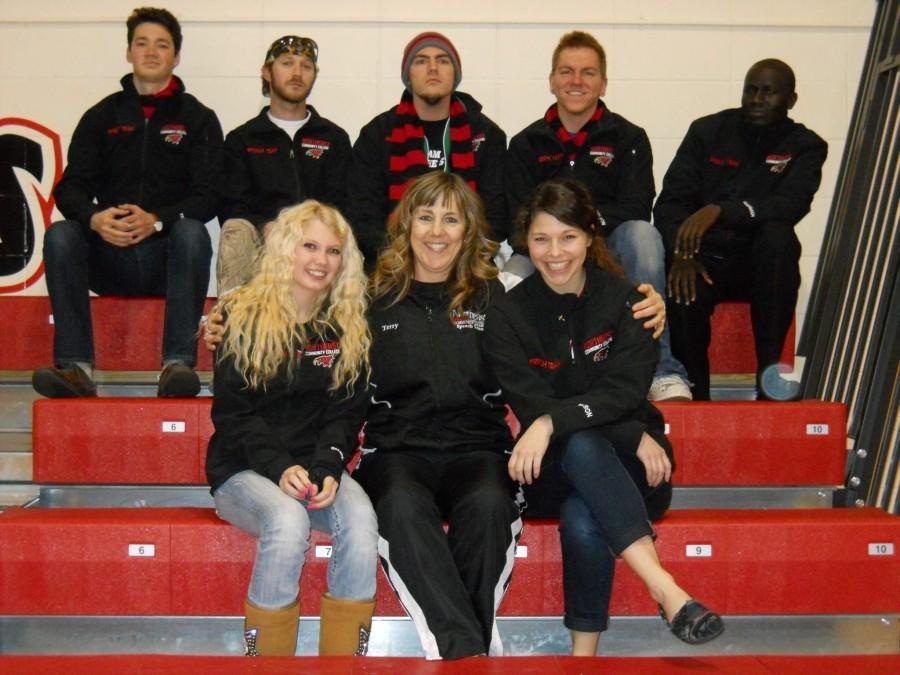When I first learned that Northeast had a speech team, I was intrigued and arranged a meeting with the coach, Terry Nelson to find out more. However, what started as an informational meeting became a whirlwind of events that resulted in my becoming a member of the team and being introduced to the whole new world of speech.
The first thing that I learned from my meeting with Terry is that college-level forensics (a fancy name for speech) is completely different than what most people think “speech” is. In the college level, speech is not like the commencement speeches seen at graduations or the President’s speeches on television. These sorts of speeches are referred to as platform speeches. Though some people give platform speeches in college forensics, most speeches are more interpretive, almost bordering on acting. The majority of speeches are excerpts from books, plays, movies, or songs, reenacted by the speaker to portray a story. The speakers are required to compile these excerpts into a single program, memorize the program, and then present the program at a speech tournament. Speeches are typically presented to a small audience and a judge who rates the speech. Whoever has the highest rating by the end of three rounds places first in the tournament and is awarded with a trophy. Trophies are essentially a way of keeping track of how well a team is doing and also provides incentive for the speakers.
Though trophies are nice, speech requires a lot of effort and time, and for most people, trophies are not enough to justify being on the team. Fortunately, there are numerous reasons and benefits for joining the team besides just winning trophies. When I was deciding whether I should join the speech team, Terry Nelson convinced me, simply by showing me the benefits of public speaking. Multiple studies have shown that public speaking increases critical thinking skills, develops problem-solving abilities, and boosts overall academic performance. Speaking is a useful skill to hone when preparing for a career beyond college. Additionally, members of the NECC speech team are often awarded scholarships for competing with the team. This was incentive enough for my fellow team members and I to join speech.
This year, the members of the speech team include Joe Lose, Musa Fofana, Jordan Sager, Drew Sempek, Erica Temple, and myself. All the members of the team are involved in interpretive speeches. A few, Musa Fofana and myself are also competing in limited preparation events (events in which the speaker is given thirty minutes to prepare and present a speech). Thus far this year, the team, under the guidance of Terry Nelson, has won 42 trophies at speech competitions around the country.

The location of tournaments at which NECC’s speech team competes varies greatly and depends largely on the schedule and budget of the team. Last semester the team competed in Missouri, Kansas, and South Dakota, and Minnesota. This spring the planned locations are Missouri, Kansas, South Dakota, North Dakota, and Minnesota. Typically the NECC speech team competes against four-year universities such as Kansas State, UNL, Texas A&M, and Western Kentucky University.
The NECC speech team has a challenging schedule ahead of them this spring, and a large amount of work and focus will be required to be competitive. However, the team appears to be up to the challenge, and are now preparing for the upcoming events. Perhaps the team would do well to follow the advice of H. Jackson Brown Jr., “I never expect to lose. Even when I’m the underdog, I still prepare a victory speech.” Updates on the progress of the team will follow.



